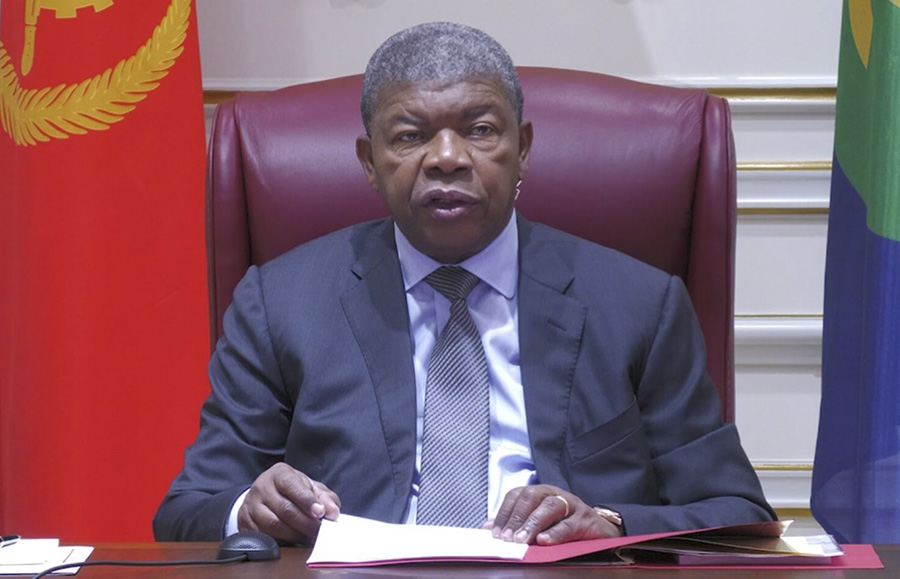 Presidente João Lourenço
Presidente João Lourenço
LUANDA, Feb 3 (NNN-ANGOP) — Angolan president João Lourenço said solidarity and joint action among the member countries of the Southern African Development Community (SADC) is essential to prevent and control the spread of the cholera outbreak in the region.
The Angolan president and SADC chairperson, who was addressing the opening speech to the Extraordinary Session of the Summit to address the cholera outbreak in the community, in virtual format, said this public health crisis represents a serious threat to sustainable development and the well-being of the populations.
Since January 2023, the SADC region has been plagued by a cholera outbreak, with cases recorded in five countries, namely Botswana, South Africa, Mozambique, Zambia and the Democratic Republic of Congo.
At this critical moment, Lourenço said, there must be recognized the urgency of our response and the need for coordinated and effective action, since cholera knows no borders and requires a regional approach to tackle it.
He underlined the need for the meeting to take decisions to prevent and combat cholera to spread and provide an effective response to this disease, based on the findings of the health ministers and the Council of Ministers’ report.
Angola is committed to leading the process of regional integration and development guided by the motto, “Human and Financial Capital: The Main Factors for the Sustainable Industrialization of the SADC Region”, the Angolan president said, stressing that without good health and well-being there can be no marked progress towards achieving the aspirations of an industrialized, peaceful, inclusive and competitive region.
Lourenço recognized that the road ahead to achieve the regional implementation of the 2030 Global Strategy for Cholera Prevention and Control is threatened by recurrent outbreaks related to climate change, which encourage the proliferation of this disease, limiting the capacity for rapid response.
He added that the SADC had faced major and numerous challenges in the past and overcame through united action, particularly in 2023, with an alarming number of cases and deaths in cyclone-hit states such as Zambia, Zimbabwe, Malawi, Mozambique and Tanzania, aggravated this year by the rains and floods that trigged a new wave of cases, representing an obstacle to the region’s economic and social development agenda.
HeHE pointed out that preparing for public health emergencies is a vital requirement at the present time to face and overcome the challenges, while prevention is the key to the problem, emphasizing the commitment to strengthening health systems, epidemiological, laboratory and environmental surveillance.
“We need solid emergency plans, trained human resources and effective warning systems that respond quickly, efficiently and in a coordinated manner, so that we can control and prevent cholera outbreaks in our region,” the Angolan president said.
He explained that the fight against cholera requires more than just medical treatment, it requires a comprehensive strategy that integrates health promotion in communities, quality healthcare, effective case management and the strategic use of oral vaccines against the disease as a preventative measure.
Lourenço added that many SADC countries have limited resources to purchase medical products, vaccines, laboratory tests and reagents for prevention and adequate and timely case management.
He explained that what is even more worrying is the limited capacity to access vaccines, so there is the need to challenge the existing standards and adapt them to the current context, so that countries can have timely, equitable access in safe quantities for all populations in affected and high-risk areas, namely victims of natural disasters and border areas with active cases.
For the Angolan president, there is an urgent need to strengthen technological transfer mechanisms and invest in factories for the local production of medicines, medical products and vaccines, with a view to self-sufficiency, while also guaranteeing economic and technological development, creating jobs and encouraging innovation in the region’s pharmaceutical sector.
Lourenço defended that the approach should focus on sustainable actions to improve access to drinking water, adequate sanitation and the promotion of individual and collective hygiene practices, which are fundamental in preventing disease transmission, reducing mortality and protecting populations.
According to him, it is crucial to strengthen epidemiological surveillance at all borders to guarantee health security and reduce the transmission of the disease through the movement of people, goods and services between member countries.
The Angolan president expressed solidarity with the countries affected by the devastating disease and families who have lost loved ones and those who are fighting it in the affected sister countries, praising the support provided by partners, namely the World Health Organization, the African Centre for Disease Control and Prevention CDC Africa and UNICEF. — NNN-ANGOP






